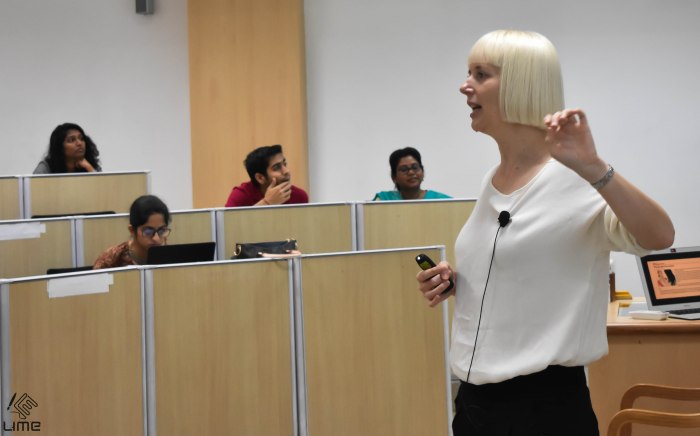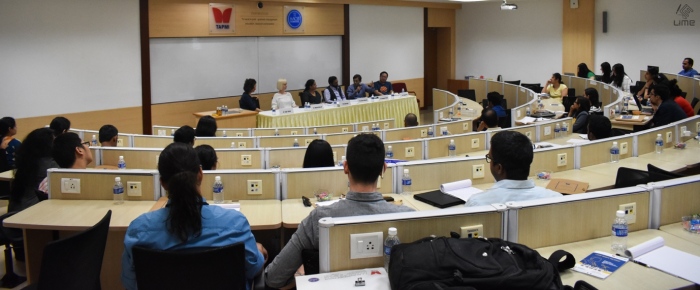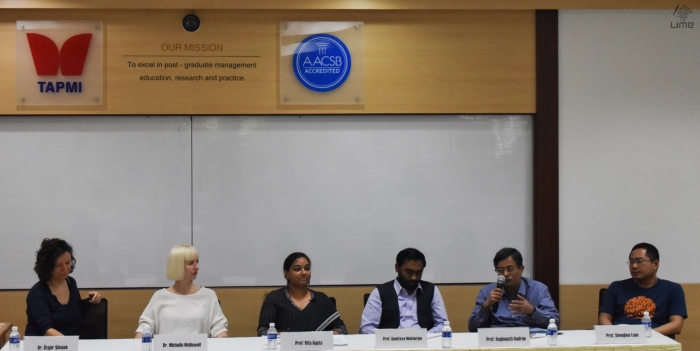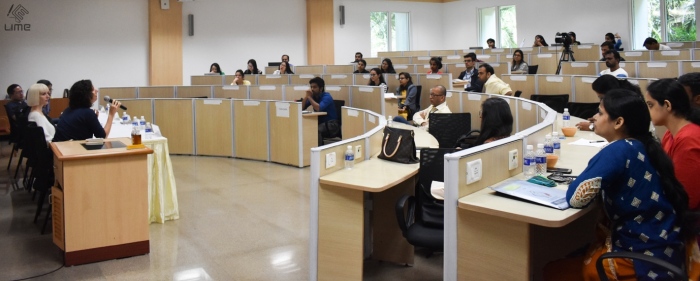On 17th January 2019, Michelle McDowell, Research Scientist at Max Planck Institute for Human Development and Harding Center for Risk Literacy addressed the cohort at Winter School 2019 at TAPMI on the topic- ‘Knowing your Risk Literacy as an Educational Challenge. The interactive session focused on statistical literacy and the importance of health claims, and enlightened the participants on the risk of statistical illiteracy.

Michelle initiated her session with a few examples to show that statistical illiteracy is a collective problem and statistical data is often difficult to understand. She unearthed the persistent problem of overdiagnosis and overtreatment of medical conditions, that primarily occurs due to lack of understanding of statistical data by medical practitioners and general public alike. This lack of clarity further causes overestimation of benefits derived from the medical interventions, that ultimately is at the heart of the problem.

Michelle then went on to explain that statistical illiteracy is created by non-transparent framing of information, such as the use of single-event probabilities, rather than absolute risks, the use of survival rates, rather than mortality rates and the use of relative risks rather than absolute risks.

She emphasized the importance of transparent risk communication and hence the teaching of statistical thinking and transparent representations in primary education. Michelle enthralled the audience with her knowledge and explanation. The session ended with a Q&A where she addressed the queries of the audience with expertise.
 On 17th January 2019, at TAPMI-MAX PLANCK-SOTON Winter School, a panel discussion was held on the topic “Women in Science”. The discussion revolved around how the role of women in science has changed during the millennia. Various issues faced by women in entering and sustaining in the field were discussed by the panelists, Dr. Özgür Simsek, Dr. Michelle McDowell, Prof. Sumitava Mukherjee, Prof Raghunath Rudran and Dr. Shenghua Luan. The discussion was moderated by Prof. Ritu Gupta.
On 17th January 2019, at TAPMI-MAX PLANCK-SOTON Winter School, a panel discussion was held on the topic “Women in Science”. The discussion revolved around how the role of women in science has changed during the millennia. Various issues faced by women in entering and sustaining in the field were discussed by the panelists, Dr. Özgür Simsek, Dr. Michelle McDowell, Prof. Sumitava Mukherjee, Prof Raghunath Rudran and Dr. Shenghua Luan. The discussion was moderated by Prof. Ritu Gupta.
